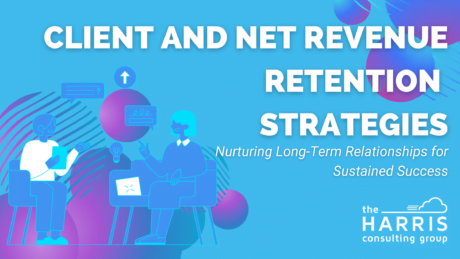According to Chorus, 32% of cold calls become discovery calls. And only 19% of those become Closed Won deals. Imagine increasing that number 1%-3%, measured over your LTV of a customer.
We all know discovery calls can quickly go awry. We’ve all had days where we may not have done enough research, we ask closed-ended questions, or we were thinking too far ahead.
When it comes to finding real pain and sharing real world value in each discovery call, Nikki Ivey (Sales Development at Emtrain and Co-Founder of SDRDefenders), has over a decade of sales and marketing experience refining the discovery process and breaking into opportunities with authenticity and empathy.
In this webinar, you’ll get actionable steps to ensure you never waste another discovery call again. Gain exercises that will make you go pro before you pick up the phone and understand the psychology behind the questions you should be asking.
Watch the recording below.
Here are some main takeaways:
Creating Capital Through Asking Good Questions
For sales professionals, creating capital comes down to understanding the people (e.g. ideal client profile, industry), the process (e.g. buying process, how they go about their day to day activities that your product will address), and the product (e.g. the knowledge of your own product). The understanding needs to be able to be conveyed within a couple sentences so that you’re not only talking to the prospect, but getting them to engage with you.
Some signals to listen out for to know you have found some “capital” in the conversation is tricky, but comes down to things like:
- Have they turned on the camera?
- Are they looking at the camera?
- How are they responding?
- Are they distracted?
- What is their tone or body language?
Prepping for Discovery Calls
LinkedIn
In prepping for a discovery call, seek out content that the company or individual might have related to the topic that you will be talking about and make note of the content to be able to bring up in conversation. Or seek out their content where their engagement might be low and make note of that as reference points to bring up if relevant to the conversation. You can bring it up in ways like, “The other day you mentioned ____ and it made me really curious…”.
Google
Secondly, do some Googling or research on your prospect’s website, it’s beneficial to find out what is important to the board or overall at a company level (e.g. their values). Then discover how your solution directly affects the person’s role that you will be speaking with.
Objections
Always be as prepared as possible to handle objections. This means finding out who their competitors might be and what pains the persona has that you’ll be talking to. Stepping into the prospect’s shoes beforehand will help you be more prepared to predict what they might say. Script this information out and spend 15 minutes before the call to review everything so you don’t stumble through objections that might be thrown your way.
Improving Listening Skills
Hit The Mute Button
If you have a tendency to ask compound questions, use that mute button! This can help you break that habit and allow you to pause before you answer or respond to the prospect. This also helps you show them that you are actively listening.
Be Curious
You can’t fake curiosity, so choose a job where you can sell things you care about to people who you can muster up enthusiasm for. If you have a job that doesn’t fit this criteria, you will have to work very hard to find something you can be excited about and be able to actively listen.
Have Open and Closed-Ended Questions
In order to talk less about your offer and focus more on digging deeper to find your prospect’s problem, be prepared with a set of open ended questions, like who, what, when, where, and why. Then prepare closed ended questions, like “can we set a meeting?”. If you haven’t done a good job asking open ended questions, then their rational mind will stick to the status quo.
Take Notes
Note taking is critical throughout discovery calls. It’s important to note that you will be typing notes as you go, so you can send them a follow up after (and that it doesn’t sound like you’re just catching up on emails while you talk). Note taking makes it so it keeps you accountable. Take notes on their challenges, team, sales process, and next steps. Afterward, start off the email stating that you made notes from the call and to let you know if you got everything correct, ensuring you’re both on the same page.
Achieving Powerful Discovery is just a taste of the types of training and insight you can get through The Harris Consulting Group’s training courses. If you’re an individual or team needing online training at your own pace, check out N.E.A.T. Selling™ here. If your team needs in-depth coaching and sales reinforcement, check out our 4 Week N.E.A.T. Selling™ Training & Reinforcement Program here.






